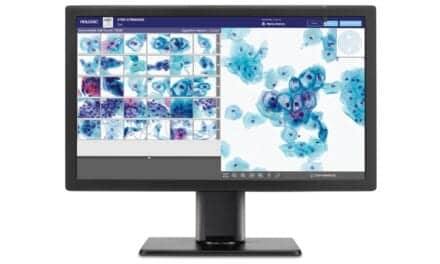The China Maternal and Child Healthcare Association and the Landing Med cytology diagnostic center at Wuhan University have launched a Cloud-based artificial intelligence platform for cervical cancer screening that can be accessed from all over the world. Women will be able to benefit from the high-quality, low-cost cervical cancer screening services provided via the Chinese diagnostic platform.
Researchers at the Landing Med research center at Wuhan University teamed up with multidisciplinary experts to develop the unique system, which uses artificial intelligence cytopathology software and robotic hardware from Landing Med, Wuhan, China, and Toledo, Ohio. Reports generated by the system, which connects Landing Med’s Cloud-based artificial intelligence software and scanning platform, can be sent directly to cellphones or remotely reviewed by cytologists before issuing.
“The goal of releasing the artificial intelligence cervical cancer screening international Cloud platform is to create an intelligent, standardized, cervical cancer screening network platform, which can be used by anyone, anywhere,” explains Xiaorong Sun, PhD, leading scientist at the Landing Med center. “Cross-border cooperation can be carried out through the artificial intelligence Cloud diagnostic platform, which currently has a monthly screening capacity of 2 million cases. In addition, this platform can support program progress monitoring and quality control, and improve follow-up rates by quick communication with each participant in the program.
“Many resource issues that we see in rural China are almost identical in many other countries,” Sun adds. “Landing Med’s successful implementation of Cloud-based cervical cancer screening in which millions of rural women participated so far can be replicated anywhere. Landing Med has already started pilot projects in countries such as Malaysia and Indonesia, where advantages of the Cloud approach have been recognized.”
“The China Maternal and Child Healthcare Association will actively participate in the promotion of artificial intelligence Cloud diagnostic technology applications,” says Xiaoqian Yu, general secretary of the association. “The successful application of this technology in China at the primary healthcare level shows that China has been at the forefront of the world in this field. Our approach can serve as a model for other countries who have similar problem with resources for early detection of cervical cancer.”
For further information, visit Landing Med.
Featured image: Xiaorong Sun, PhD, explains real-time statistical analysis of cervical cancer screening for the Province of Hubei.






